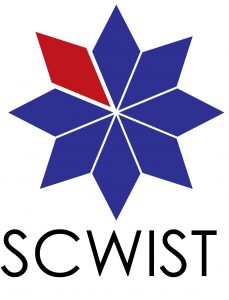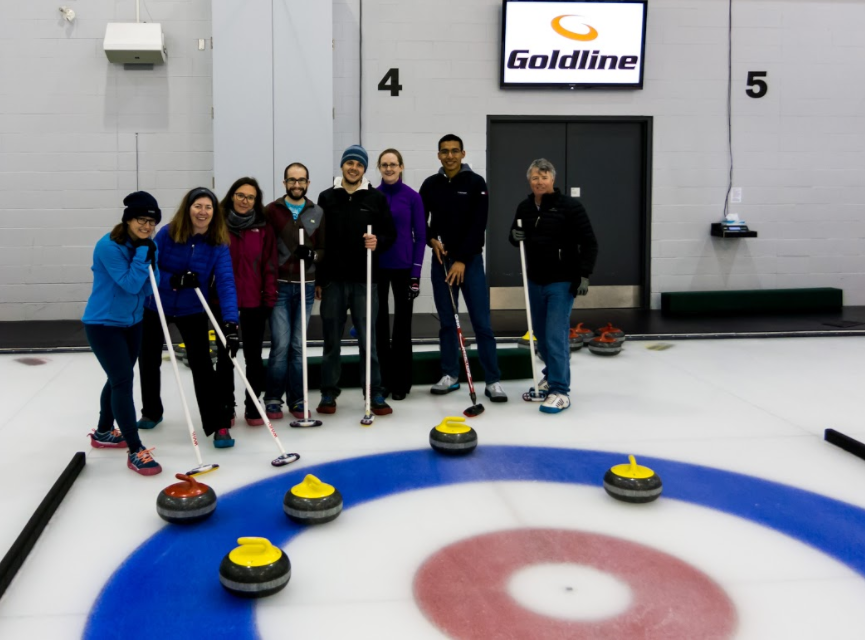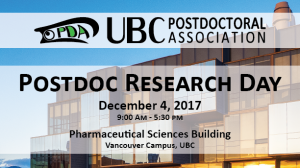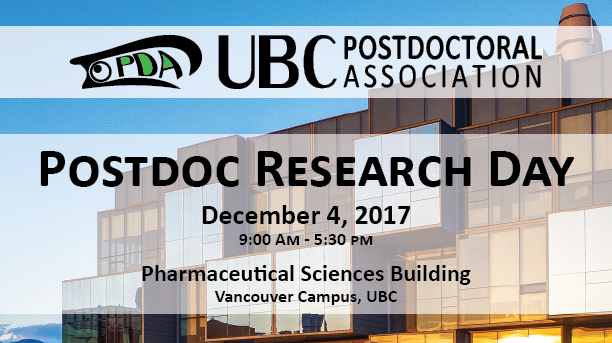Postdoc Research Day was bigger and better than ever! For the first time, there was a whole day of research presentations, professional development, and networking opportunities. Over 100 postdocs, students, faculty, and industry representatives came together to celebrate the amazing research being carried out by postdoctoral researchers across UBC’s Faculties and Institutions.

Also a first, this year’s event was held in larger facilities in the Pharmaceutical Sciences building, thanks to the generous support of the Faculty of Pharmaceutical Sciences. There were twelve 15 minute talks and plenty of posters presented by postdocs and research associates, as well as a keynote lecture from Dr. Lori Brotto, and a careers panel featuring former postdocs now working in various positions in industry and academia.
Check out the program and abstract book for the day.

Kieran, PDA President, opened the day with an introduction to the Postdoctoral Association before Susan Porter, Dean of the Faculty of Graduate & Postdoctoral Studies, spoke about the value of postdoctoral researchers at UBC. There were then two sessions of 15-minute research presentations from postdocs in areas ranging from anthropology to computer science. The morning finished with a 5-minute advocacy update about the PDA’s campaign to build awareness of #SupportTheReport – and what you can do to help out Canadian Science!

During lunch, the first poster session took place in the atrium, before Dr. Lori Brotto gave her keynote lecture. She outlined her impressive research program, and her path from postdoc to Director of UBC’s Sexual Health Laboratory. This was followed by four more research presentations from postdocs and the second poster session over coffee.
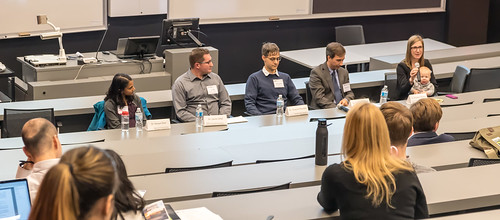
The careers panel concluded the day, featuring former postdocs who have taken various career paths in Vancouver. They shared their extremely valuable insights into translating the skills gained during postdoctoral work to jobs in and out of academia. The conversation continued late into the evening over pizza and sushi at the networking social held after the event.

All of the talks and poster presentations were judged by a team of faculty, postdocs, and industry representatives throughout the day. All of the presenters did a great job and both competitions were extremely close – you can see the list of winners below.
The UBC PDA Executive Team would like to congratulate all of the winners, thank all the participants for making this an excellent event, and thank all of the judges and the audience for supporting us. We hope everyone enjoyed themselves, and look forward to seeing you at future UBC PDA events!
Find more photos of the event here.
The winners:
Talks:
1st Place ($150) – Paul Pickell (Forestry)
2nd Place ($100) – Catherine Jutzeler (Kinesiology)
3rd Place ($50) – Sophie Stukas (Pathology & Laboratory Medicine)
People’s Choice ($50) – Jordan Burke (Forestry)
Posters:
1st Place ($75) – Rahul Sachdeva (ICORD)
2nd Place ($50) – Mohammad Fazel Bakhsheshi (Mechanical Engineering)
3rd Place ($25) – Ryan Melnyk (Microbiology & Immunology)
We are extremely grateful to our sponsors who made this event possible.
Association Sponsor:

Event Sponsors:



